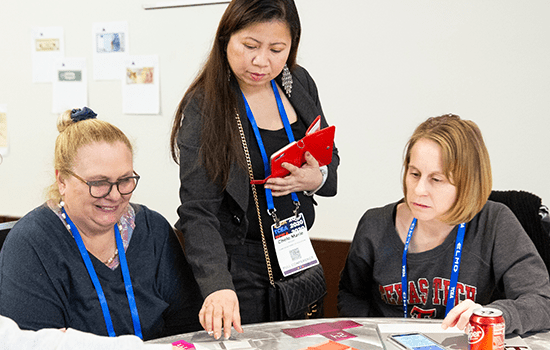Presentations
Presentation Submission Guidelines
The TCEA Convention includes presentations in a variety of formats to meet the needs of all types of learners and presenters. Some presentation formats may be booked exclusive to in-person or online participants or a combination of both.
The submission window has closed. Please contact presenters@tcea.org for late submission consideration.
The Topics
Presentations will be aligned to a primary topic, with up to 5 supporting topics, and may be presented in a variety of offered formats and durations.
Presentation Topics
Advocacy and Educational Policy
Apple
Assessment and Data
Augmented Reality / Virtual Reality / Mixed Reality
Blended / Flipped / Virtual Learning
Coaching
Coding / Computational Thinking
Computer Science
CTE / Technology Applications
CTO
Curriculum Design
Cybersafety / Security
Device Implementation and Management
Digital Literacy
Diversity and Inclusion
ELAR
ESL/ELL
Esports
Funding
Future Ready
Gamification
Gifted and Talented
Information Technology / Technical Support
IoT / Gadgets
Leadership
Learning Spaces
Library Media / Media Integration
Makerspace
Math
OER
PBL
Personalized Learning
Professional Development / Digital Badging
Research and Best Practices in Learning
Robotics
Science
Social-Emotional Learning
Social Studies
Special Needs
STEM/STEAM
Storytelling
Student Voice / Choice
T-TESS
Young Professionals
Presentation Formats
The TCEA Convention includes presentations in a variety of formats to meet the needs of all types of learners and presenters. Some presentation formats may be booked exclusive to in-person or online participants or a combination of both. Please specify your preference in the submission form. Consider what format you prefer prior to submitting your presentation.
Hands-on Experience
Hands-on experiences are intended to provide an in-depth review of the content being delivered and help participants discover more of a topic than a standard presentation. These workshop-style experiences may be content- or platform-focused, and may not require specific devices to participate. Presenters will provide practical strategies, research-based information, and useful tools for participants. Workshops are 90 minutes, three hours, or six hours.
Roundtable Discussion
Roundtable discussions, formerly known as Solution Circles, consist of a topic with the presenters serving as a discussion moderator. A topic is provided, inviting interested attendees with introductory or advanced knowledge levels, to actively participate in discussions to share best practices, what has worked and has not worked, and small group conversation to further develop their level of knowledge and build their professional learning network. Roundtable discussions are 60 or 90 minutes.
Online Session
Online sessions are real-time presentations provided to online participants in a webinar-style environment. This format welcomes lecture-style and learn-as-you-go presentations with live interaction. Online sessions are 60 minutes long.
Panel Discussion
In this type of presentation, a panel, consisting of 3–5 people (including the submitting moderator), presents their views on a common theme, issue, or question, and then discusses them with the audience. Panel presentations are intended to provide an opportunity to hear about specific topic(s) presented by several knowledgeable facilitators, where each presenter will discuss their expert views on the topic. The presentation will help participants further understand and evaluate the topics being discussed. Panels are 60 minutes or 90 minutes and require a diverse panel of presenters, from different positions or districts.
Session
Sessions are 60 or 90 minutes and consist of a lecture-style presentation, with time for interaction between attendees and presenters. Presenters are encouraged to share proven strategies for successful curriculum integration from personal experience and research projects related to technology-based instruction. All rooms are set up theater-style unless special provisions have been requested. Presenters must bring their own devices for presentation.
Exhibitor Showcase
Sessions are 60 or 90 minutes and consist of a lecture-style presentation, with time for interaction between attendees and presenters. Presenters are encouraged to share proven strategies for successful curriculum integration from personal experience and research projects related to technology-based instruction. All rooms are set up theater-style unless special provisions have been requested. Presenters must bring their own devices for presentation.
Poster Session
Poster sessions are tabletop displays with resources and ideas for attendees on a variety of topics. In this concurrent-presentation environment, presenters can engage with attendees individually or in small groups. This open, booth-like environment encourages meaningful conversations regarding ideas, implementation, tools, and projects that attendees can immediately incorporate in their classroom, campus, or district. Sessions are grouped around a common theme, such as STEM, leadership, or coding. Poster sessions last two hours, but are a combination of many short conversations.
On Demand Session
On demand sessions are pre-recorded presentations provided to virtual participants. Although live interaction is not provided during these sessions, on demand participants may participate with the recorded content as they learn at their own pace. Lecture-style and learn-as-you-go sessions are invited to be a part of this format. On demand sessions range from 30 to 60 minutes.
Consider Before Submitting
The following advice is provided from the Evaluation Committee to help you prepare your presentation submission. All presentations are reviewed by multiple evaluators using a common grading schematic. These points will give you a better shot at receiving a higher score with the best chance of being selected.
- Include the Why: Do not exclusively provide the “What” (what tools will be used), but be sure to include the “Why” or “How” (i.e. why will this make an impact in the classroom; how to implement this immediately following your session).
- It’s Not Always About the Tool: Research-based strategies and pedagogy is typically preferred over a tool-based strategy. Starting with the strategy and resulting in a tool, or option of tools to implement the strategy is preferred.
- Diverse Points of View: If submitting a panel discussion, or session with more than one presenter, be sure to include attendees from multiple campuses, districts, or organizations who will present this session through various experiences and viewpoints.
- Budget Considerations: Submissions that highlight free or inexpensive software/resources are more likely to be selected.
- Educational Sessions Are Not Meant to Sell Your Product: Vendor-led sessions are less likely to be accepted. Typically, evaluation committees find it more appealing if the key speakers are peers or school district representatives.
- Be Transparent: Include as many details within your submission. You have the opportunity to expand upon your short description in the detailed section. Be sure to provide learning objectives, what makes your session stand apart from others, and critical steps your attendees will take to grow.
- Experience: Explain the experiential side of your session. It is not always about the quantity of information shared, but the quality. Make sure your audience will leave with tangible tools, rather than be exhausted from content overload.
- Activities Critical to the Success of Your Session: If your session includes special considerations (students, unique activities, or special room setup) you must include this in your submission. If you do not, this special consideration is less likely to be approved.


